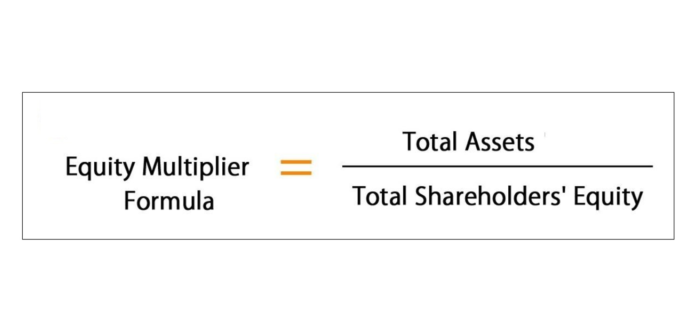
Most firms will need three business bank accounts at a minimum—checking, savings, and a separate IOLTA or trust account. Without the proper business bank accounts, you risk inaccurate bookkeeping, messy records, and potential compliance violations regarding trust funds. To ensure your firm’s financial statements are accurate, complete, and up-to-date, you need to use sound bookkeeping for attorneys. Accurate and complete records are paramount for year-end accounting in law firms, serving as the backbone for transparent financial reporting. These records encompass a wide range of financial transactions and documents, including invoices, receipts, payroll records, and ledgers, which together create a comprehensive picture of the firm’s financial standing. In conclusion, effective preparation for year-end accounting through diligent bookkeeping is Car Dealership Accounting crucial for law firms aiming to thrive in a competitive landscape.
- Although daunting for some, the principles behind law firm accounting and financial management are based on simple financial management concepts that are not as difficult to master as you might think.
- When billing disputes arise from erroneous records, the firm risks losing not only the current client but also potential future referrals.
- On the other hand, income refers to what is left over after the firm’s costs and expenses have been deducted from the revenue.
- Ethics rules vary in each jurisdiction, but there are definitely some basics when it comes to accounting for law firms.
- Such analyses may reveal unexpected trends, prompting law firms to scrutinize their billing practices or explore alternative pricing models that better reflect their services.
Bookkeeping at law firms
Law firms should seek providers who implement role-based access to information, ensuring that only authorized personnel have access to specific data sets. This is crucial not only for protecting sensitive information but also for maintaining a clear audit trail. Additionally, the ability to track and monitor access logs can provide an extra layer of security, allowing firms to audit who accessed their information, what actions were taken, and when. Key features to consider when comparing bookkeeping software include automated invoicing capabilities, expense tracking, detailed reporting options, integrations with existing systems, and the quality of customer support. Automated invoicing can significantly reduce administrative overhead by allowing firms to generate and send invoices quickly and accurately, minimizing the chances of human error. Encouraging ongoing feedback from users about their experiences can provide invaluable insights that may inform further training initiatives or software customizations.

PRIVATE CLIENT
Properly categorizing expenses is essential for accurate tax reporting and maximization of deductions. For instance, while a firm may incur costs related to personal liability for a partner, such expenses cannot usually be claimed as business deductions. Law firms must equip themselves with sound financial management practices, ensuring that personal expenditures are kept separate from those related to business operations. This separation not only aids in tax preparation but also helps maintain a clear financial picture of the firm’s profitability. Lastly, promoting a culture of transparency within the firm can greatly mitigate risks related to trust account management.

Why should law firms consider accounting services?
Specifying your accounting methods and needs is another important step to mastery of legal accounting and financial management. The appropriateness of one method over the other highly depends on the characteristics of your firm. You can do it manually or by using powerful legal accounting software to assist law firms in meeting this requirement. Additionally, maintaining accurate books helps ensure that all financial information is correct and up-to-date. Quickbooks is still the leader in accounting software, making it a reasonable first choice for lawyers. Quickbooks is also the leading software for integrating with practice management software, so I can see why many lawyers would choose it.

By automating the time-tracking process, attorneys can ensure that every minute spent on a case is meticulously accounted for, reducing the risk of bookkeeping lost billable hours and ultimately improving the firm’s revenue potential. Utilizing bookkeeping software specifically designed for time and billing in law firms can significantly enhance efficiency and accuracy, making it an indispensable tool for legal professionals. Additionally, failing to maintain adequate documentation is a frequent issue that can lead to significant complications during audits. The lack of proper records can raise red flags with tax authorities, jeopardizing the firm’s standing and potentially incurring hefty fines.

This holistic approach not only fosters transparency and trust with clients but also streamlines workflow law firm accounting services processes within the firm, ultimately leading to improved productivity and client service. Bookkeeping not only ensures compliance with financial regulations but also plays a pivotal role in enhancing profitability for law firms. By maintaining precise and up-to-date financial records, firms can gain insightful analyses of their income and expenses, which is crucial for making informed business decisions. Lawyer financial reporting provides insight into the firm’s financial health, highlighting key performance metrics like profit margins, client billings, and outstanding receivables.
This includes not only familiarity with trust accounting but also expertise in billable hours tracking, expense management, and adherence to compliance regulations concerning financial record-keeping. Such insights can be invaluable during busy periods or when navigating complex cases, allowing firms to make informed financial decisions that support their operational goals. Bookkeeping is an integral component of ensuring compliance for law firms, as it establishes a robust framework for meeting various legal and regulatory obligations.